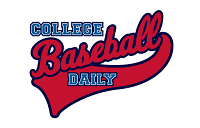Oregon State left-hander Ben Wetzler’s senior season is on hold for what appear to be the weakest of reasons.
A fifth-round draft pick in 2013 by Philadelphia, Wetzler could not come to an agreement with the Phillies and opted to return to the Beavers for one more shot at a College World Series title. Reportedly, he left a mid-six-figure signing bonus in making that decision.
It wasn’t a lightly made choice. Wetzler sought out expert advice – financial and legal – to make the wisest decision possible. The NCAA suspended him indefinitely for seeking that advice because he supposedly made use of an agent.
The NCAA’s stance on agents is clearcut. It’s like a line drawn in hardened concrete. If an athlete hires an agent – someone to negotiate contracts or provide professional advice regarding a possible professional sports career – then their eligibility to participate in that sport is forfeit.
In sports like football and basketball, the rule makes sense: athletes declare their eligibility for the draft in those sports. In baseball, it functions differently. The athletes are eligible for the draft as high school seniors and after their third year of college. Athletes like Wetzler don’t have a say in whether they are drafted and offered a contract or not. The NCAA’s rule leaves them at the mercy of the Major League Baseball franchise and its honesty in negotiations.
How honest were the Phillies? According to some sources, they were so upset that Wetzler did not sign (along with another draftee, sixth-round pick Jason Monda of Washington State) that someone in the Phillies organization told the NCAA both players had engaged agents to represent them in negotiations.
Therein lies the problem with the NCAA’s rule. Without representation, the athletes can be exploited by Major League Baseball. With representation – and sound financial advice on something that can and will affect their future earnings – they lose their eligibility.
Did Wetzler and Monda ask to be drafted? No. Did they hope to be drafted? Sure. Unlike any NCAA football or basketball player, the choice to enter the draft was not theirs to make. They weren’t gambling on instant riches from a professional sports career, and they both decided now wasn’t the time to accept a professional contract.
Instead of trumpeting Wetzler and Monda as signs of what is right about collegiate baseball, the NCAA has treated them as pariahs, suspending them for trying to look out for their best long-term interests.
Wetzler’s case has been before the NCAA since at least November. He was suspended the day before the season opener. The cutoff for 2013 draftees to sign contracts was July 12.
There was no secret about the passing of the signing date. If the NCAA wants to take issue with athletes seeking advice about possible professional contracts, perhaps its investigative arm should be more proactive and begin work on cases such as Wetzler and Monda’s – both high-profile draftees who weren’t signed – long before the summer ends.


1 comment
Let the players have agents. We don’t live in Russia ….or maybe we do???
Comments are closed.